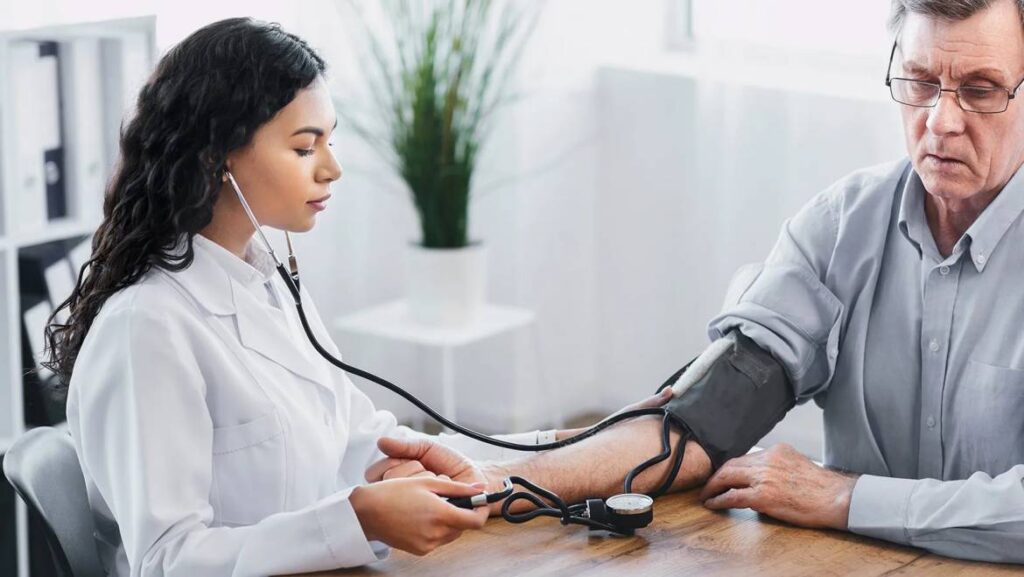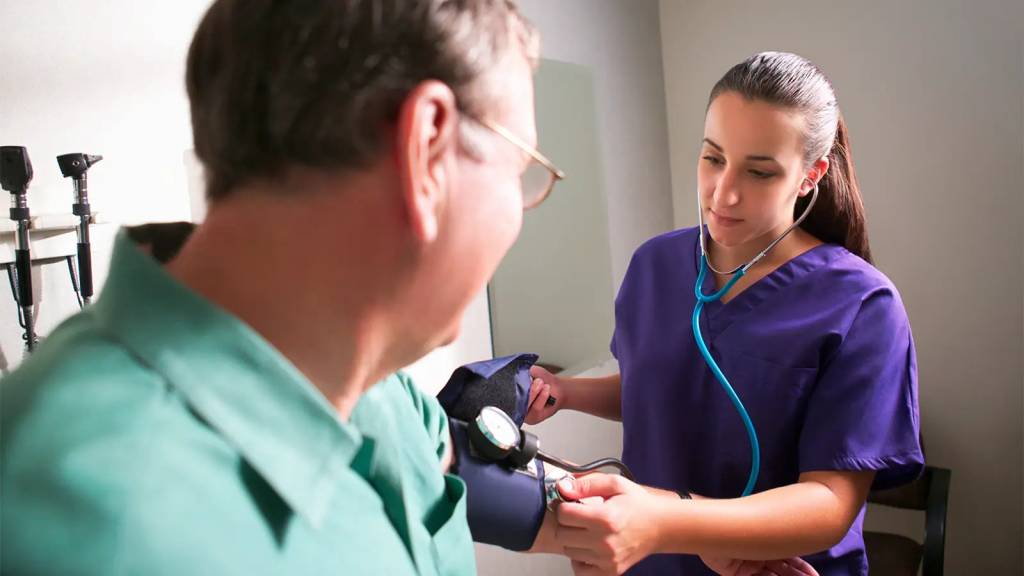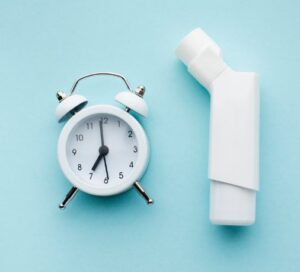
What is high blood pressure? Hypertension is the medical name for high blood pressure, a frequent disorder that affects the arteries in the body. The arterial pressure is higher in hypertension patients than it should be. Millimeters of mercury, or mm Hg, are used to measure blood pressure. Blood pressure should read 120/80 mm Hg.
The American Heart Association classifies blood pressure into four broad categories. A normal blood pressure reading is considered to be the optimal value.
Blood pressure of 120/89 mmHg or less is considered normal.
Elevated blood pressure: The measurement is between 120 and 129 mm Hg.
The range for stage 1 hypertension is 130/80 mmHg to 139/89 mmHg.
When the blood pressure reading is 140/90 mm Hg or greater, it is considered stage 2 hypertension.
An elevated blood pressure of 180/120 mmHg is deemed a hypertensive emergency. If someone has these blood pressure levels, they should get medical attention right away. Untreated hypertension increases the risk of heart attack, stroke, and other potentially fatal illnesses. A person is healthy no matter what age they are if they are free from symptoms of any medical conditions. Blood pressure should be monitored at least every two years. Make sure to do this because some folks require more frequent inspections. Healthy eating, regular exercise, and quitting smoking are just a few examples of lifestyle choices that can help prevent and manage high blood pressure. In addition, some people require oral medicine to manage uncontrolled hypertension.

What Signs Are Present?
Even when blood pressure measurements get to dangerously high levels, the majority of hypertensive patients don’t exhibit any symptoms. Years can pass while you have hypertension without experiencing any symptoms. On the other hand, some hypertensive individuals experience nosebleeds, dyspnea, and headaches. These hypertension symptoms aren’t particular, though. They typically don’t show up until blood pressure levels are dangerously high or at a critical point.
When Should I See A Doctor?
Checkups for blood pressure are essential for general health. The frequency of blood pressure checks typically varies based on age and general health. Beginning at age 18, you may have a blood pressure check at least every two years. Get your blood pressure checked annually if you are above 40 or between the ages of 18 and 39, as you may be at a higher risk of developing excessive blood pressure. If you are at risk for heart disease or have high blood pressure, your doctor may probably advise taking readings more frequently. As part of their annual physical examinations, children three years of age and up may have their blood pressure tested.
Which Are The Reasons?
Most of the time, the exact cause of high blood pressure is unknown. Certain factors, however, can raise the danger. Excessive physical activity and other harmful lifestyle choices are among the possible causes of high blood pressure. Obesity and diabetes are two more illnesses that might raise the chance of getting high blood pressure. Pregnancy can also cause hypertension. Controlling your blood pressure is essential if you want to reduce your chance of developing major illnesses that impact your heart, kidneys, brain, eyes, and heart.
Who Is More Likely To Get High Blood Pressure?
High blood pressure can occur more frequently in those who have risk factors. Some things are under your control, while some are not.
Controllable risk factors are:
Diabetes elevated cholesterol
Smoking cigarettes and being around secondhand smoke
Lack of exercise
Being overweight and obese
unhealthy diet that is heavy in sodium, poor in potassium, and excessive alcohol consumption.
Factors That Are Hard To Manage:
High blood pressure in the family history
Gender (males)
Growing older
racial or ethnic
apnea obstructive sleeper
persistent renal illness
High blood pressure is also associated with socioeconomic status and psychosocial stress. These may have an impact on a person’s capacity to adopt new lifestyle habits, access to medications, and medical professionals.
See Also: Diabetic Stomach Pain: Indications and Treatments
What Can You Do About High Blood Pressure?
- Do not smoke and avoid secondhand smoke.
- Maintain a healthy weight
- Eat a balanced diet that contains very few saturated and trans fats and is rich in vegetables, fruits, whole grains, and low-dairy products. It is recommended to consume less than 1500 mg/day of salt. In some cases, reducing daily intake by 1000 mg can help.
- Eat foods that are rich in potassium. Be sure to consume 3500 to 5000 mg of dietary potassium per day.
- Limit alcohol consumption. Do not have more than one drink per day if you are a woman or two drinks a day if you are a man.
- Exercise regularly. Make sure you perform 150 minutes of moderate-intensity physical activity every week. You can add muscle-strengthening exercises at least twice weekly for more health benefits.
- Take high blood pressure drugs the way your health care specialist tells you. You can buy blood pressure medication online at the lowest price.
How Would You Know If You Have It?
Checking your blood pressure on a regular basis is the only way to determine its level. In order to accurately diagnose hypertension, your healthcare provider will examine a minimum of two readings taken over two or more visits.




